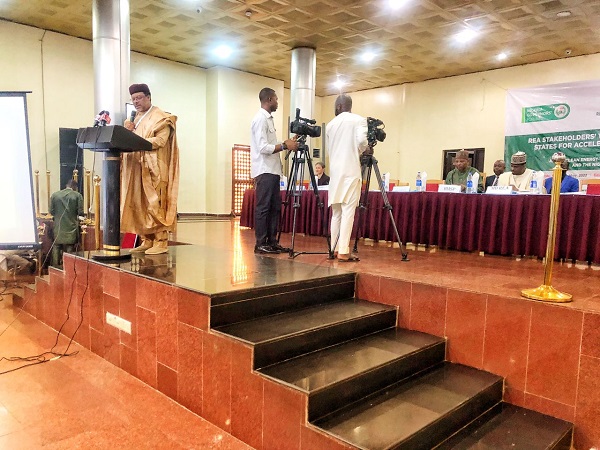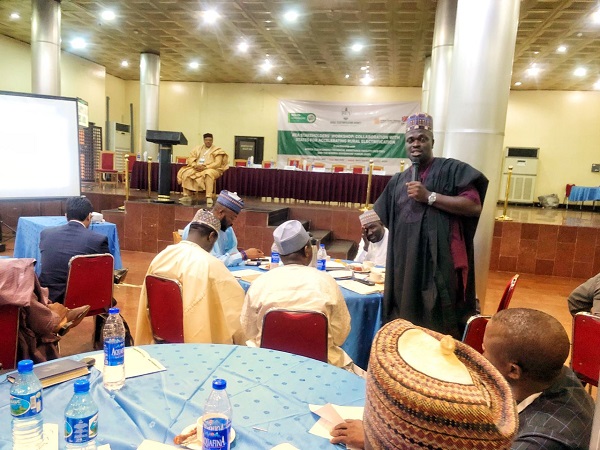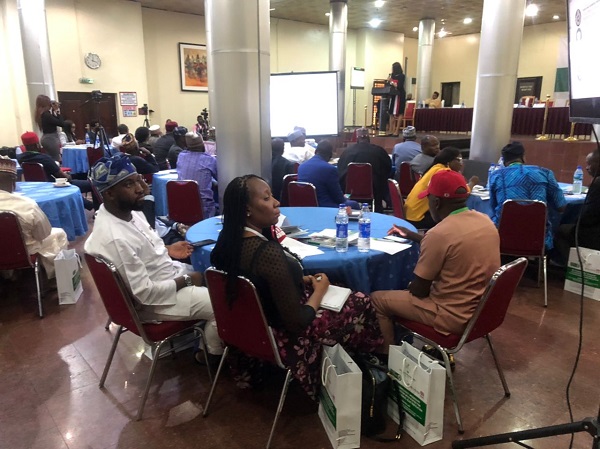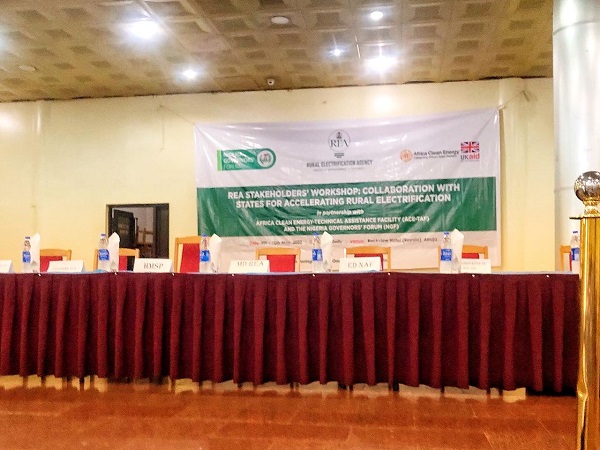Electricity is what enables one to have a functional business. Electricity is what enables one to navigate the tech space. Having energy/electricity can contribute to the global economy. The Rural Electrification Agency (REA) in collaboration with the Nigeria Governors’ Forum (NGF) and the Africa Clean Energy Technical Assistance Fund (ACE-TAF) hosted a 2-Day workshop on the 9th and 10th of May 2022.
The event focused on the collaboration with states for accelerating rural electrification. The Rural Electrification Agency is the implementing agency of the Federal Government of Nigeria under the Federal Ministry of Power tasked with the electrification of unserved and underserved rural communities through the deployment of off-grid solutions such as mini-grids and standalone systems and by extending grid connection to communities that are close to the national grid.
Some of the objectives of the workshop were to foster a harmonious working relationship between REA and States; create a pathway for access to data on unelectrified communities; and enable proper coordination and flow of information among stakeholders such as the Federal and State Governments, private developers, and energy access companies.
The stakeholders comprised the Federal Ministry of Power, Development Partners such as the Foreign, Commonwealth & Development Office (FCDO) and the World Bank, State Government representatives (State Rural Electrification Focal Persons including Honourable Commissioners and Heads of the Rural Electrification Boards, amongst others.

At the discussion was the Managing Director/CEO of REA, Engineer Ahmad Salihijo Ahmad who said that NGF has been kind in supporting the project to ensure there is proper coordination to deliver on the mandates.
He mentioned that the selection of the State delegates at the event was well thought through to ensure institutionalization.
‘‘The success of our attempt to increase energy access is linked to our association with state governments. We need to have state governments on board to ensure that what we do will benefit communities,’’ said Engineer Ahmad.
He further stated that there is a need to have private-sector partnerships, but the challenge is the lack of communication and synergy.
‘‘During this workshop, the aim of the workshop is to showcase all that we do and the key role with the states,’’ he said.
Gail Warrander, the Team Leader for Economic Development, UK, FCDO stated that Nigeria has not yet made the progress that Nigeria needs. That Nigeria has more people with no energy in the world.
She highlighted that there are three key lessons to gain from the workshop which include the need for technology and Fintech, the need to get incomes up, and the need to consider policy and improve customs.
She added that we must consider the productive use of income: the means to work out where to get synergies, mini-grids, and solar systems. There is also the need for commercial use to subsidize domestic use.

Dr. Sanusi Ohiare, the Executive Director of the Rural Electrification Fund said that the fund is a pool from both yearly project allocations and international and development banks.
He further explained that government would partner with stakeholders and private partners and the States play a critical role.
Some of the challenges that they face are due to delayed implementation, and a lot of bureaucracy when it comes to following due processes to get approvals.
Another challenge is in bridging the communication gap between the developers and financiers. Then, there is the issue of security with some staff having been shot in the South-East.
Engr Barka Sajou, the Executive Director of Technical Services of REA said that with capital projects, they identify the needs and prepare various solutions.
He stated that the constraints are due to a lack of synergy between the REA and state governments.
‘‘There is the need to look at various options that have a productive use of energies for communities that are far from the grid,’’ said the Engineer.
Engineer Sajou said the state government is key in how the projects would be actualized because the states represent the people.
He lamented that some of the challenges are due to having situations where they start projects but don’t complete them because of budget constraints.
Among the speakers in the workshop was Mr. Chibuikem Agbaegbu- Nigeria Country Manager, Africa Clean Energy-Technical Assistance Facility (ACE-TAF).
ACE-TAF has interventions in Nigeria, Zambia, and Ethiopia. They support the government by conducting studies on enabling environment, knowledge management, and coordination with donors and Governors to ensure solar delivery.
In Lagos State, they support the state in the development of the Lagos State Electricity Policy, especially off-grid electrification.
They have also supported the state to develop the Lagos State Off-Grid Solar (OGS) Strategy Plan to support the implementation of the Electricity Policy.
In addition, they have done capacity building for Lagos State Electricity Board (the State Government focal OGS institution). In Jigawa State, they supported the state to develop the Jigawa State Off-Grid Solar Policy. They have supported the state to develop the Jigawa State Off-Grid Solar Action Plan to support the implementation of the Policy.
In addition, they have also supported capacity building for the State Ministry of Works & Transport (the State Government focal OGS institution) and the State Rural Electrification Board.

As part of the workshop, there were breakout sessions that were intended to discuss how REA can collaborate better with states on projects.
As the groups came together, the main highlight was that there should be more data shared with the focal persons in each state and better synergy.
At the closing of the workshop, Mr. Abdulateef Shittu, the Executive Director of the NGF provided the closing remarks.
He said that accelerating the rural economy in Nigeria is important, believing that Nigeria’s biggest challenge is not insecurity but that of having energy/electricity.
He added that Nigeria loses 25 billion dollars annually due to a lack of electricity which is unfortunate. ‘‘It’s important that we come together and see how we can improve the situation,’’ said Mr. Shittu.
He later commended the participants for their attendance; assuring that this engagement would be one of many to expand the electricity sector with future engagements across zonal zones.
By Isioma Ononye,
Social Media Officer



